Adrenal fatigue is probably one of the most underappreciated and misdiagnosed conditions out there (next to the thyroid, of course!).
The reason for this is simple:
Most doctors don’t even believe that adrenal fatigue exists (1) as a medical condition or diagnosis.
So if you want to actually be diagnosed and treated for this condition then you pretty much have to seek out the help of an integrative/holistic/alternative medicine physician.
I’m not going to get into whether or not adrenal fatigue exists, because it’s fairly obvious to anyone who suffers from the symptoms that it is indeed a REAL entity.
But I do want to focus on something which I believe is more important:
The connection between both your adrenal glands AND your thyroid.
These two systems are linked in such a way that if you have problems in one you will necessarily have problems in another.
What this means for you is that it’s unlikely that you JUST have an adrenal problem or that you JUST have a thyroid problem.
Understanding this connection is so important because you must treat BOTH conditions if you want to feel better!
Focusing on one over the other is important but it won’t lead to lasting improvement.
So, with that in mind, let’s talk more about the symptoms of these two conditions, where the symptoms overlap, and how to determine if it’s your adrenal glands causing your issues or your thyroid…
Adrenal Fatigue Symptom List
One of the easiest and most effective ways of diagnosing adrenal fatigue is by simply paying attention to your symptoms.
We will brush up on how to test for adrenal fatigue in a moment (and why it’s important but not always necessary) but what you HAVE to know are the symptoms associated with this condition.
Common symptoms of adrenal fatigue include:
- Fatigue! – This is the #1 symptom and something that all adrenal fatigue patients suffer from. This fatigue is more than your run-of-the-mill fatigue as it is debilitating. The degree of how debilitating it is depends on how advanced your condition is. If left untreated this fatigue will continue to get worse and worse.
- The sensation of feeling wired but tired – does it feel like you NEED to sleep but you are having trouble relaxing or turning off your brain when it comes down to it?
- Weight gain – The weight gain associated with adrenal fatigue is typically found in the abdomen/stomach/belly area. If you have isolated fat in your belly then that is a tell-tale sign of adrenal fatigue.
- Cravings for sugary foods and carbohydrates – People with adrenal fatigue often have cravings for carbohydrates and salty foods. Carbohydrates help provide the body with the sugar and energy it needs and salt is actually a therapeutic ingredient to fix your adrenals (which is why you are craving it!).
- Reliance upon caffeine for energy – If you find that you simply cannot function in the morning without a cup of coffee or some type of energy drink then that is a problem. People with adrenal fatigue often rely upon caffeine to get them up and going throughout the day.
- Inability to “wind down” or relax your brain at night – When you lay down at night to go to sleep do you have trouble shutting off your brain and falling asleep even though you are incredibly tired and fatigued?
- Insomnia – Many (but not all) patients with adrenal fatigue often have trouble falling asleep or staying asleep. This often manifests as difficulty in falling asleep and getting into deep REM sleep throughout the night.
- Low thyroid symptoms (more on that below) – There is often an overlap between adrenal fatigue symptoms and low thyroid symptoms.
- Anxiety (but sometimes depression) – Anxiety is a common symptom of adrenal fatigue but some people can experience depression as well or both depression and anxiety.
- Weakened immune system – Are you catching every cold that you come into contact with? Cortisol and adrenal problems weaken your immune system and make you more susceptible to infections and illnesses.
- Decreased sex drive and libido – Is your sex drive lower than it should be? Constant stress and cortisol problems lead to reduced sex drive.
- Inability to handle stress – Do you feel like your body is going to break if you add just one more thing to your plate, big or small? People with adrenal fatigue often have a hard time handling stressful situations because their body is at capacity.
If you have 2-3 of the symptoms above then you have a moderate chance of having adrenal fatigue.
If you have 4+ of the symptoms above you have a high chance of having adrenal fatigue.
If you have 6+ of the symptoms above then you likely have both adrenal fatigue and thyroid problems.
Remember:
Adrenal fatigue will continue to get worse unless you address the cause which is usually related to stress, sleep, diet, work, and your social life.
I should also point out that there are different variations or “flavors” of adrenal fatigue that you can have.
You can experience low-energy adrenal fatigue (fatigue predominant), wired but tired (high-energy adrenal fatigue), and more.
These are all variations of the same condition but they are important because they may be treated differently.
How do the symptoms of adrenal fatigue compare to those of low thyroid function?
Low Thyroid Symptom List
Hypothyroidism is probably just as common, if not more common, than adrenal problems.
And people who suffer from thyroid problems tend to have a very difficult time getting diagnosed just like those who have adrenal fatigue.
Your thyroid gland is arguably a more important hormone gland when compared to your adrenals simply because it impacts more systems and organs in the body.
Because of this, the symptoms of low thyroid function are widespread and diverse.
Let’s take a look at the common symptoms of hypothyroidism:
- Fatigue – The fatigue in hypothyroidism is similar to that of adrenal fatigue. Much like adrenal-related fatigue, thyroid fatigue will not improve unless treated.
- Cold intolerance – Your thyroid regulates your body temperature so low thyroid function leads to a colder body temperature.
- Depression (sometimes anxiety) – Low thyroid tends to cause depression more than anxiety but you can get either or both.
- Brain fog – Do you feel like your brain is in a fog? That it’s hard to remember your thoughts clearly? If so, this may be from a symptom known as brain fog.
- Weight gain – The weight gain seen in hypothyroidism tends to be throughout the whole body and not isolated to just your abdomen like adrenal fatigue.
- Joint pain and muscle pain
- Dry skin
- Constipation – Low thyroid slows down the transit time of your bowel movements and leads to constipation.
- Infertility – Hypothyroidism is notorious for causing infertility because of its impact on progesterone and estrogen.
- Decreased sex drive and low libido – Much like adrenal fatigue low thyroid can also lead to decreased sex drive.
While there are many similarities between adrenal fatigue and hypothyroidism, you should also see some noticeable differences as well.
These differences are important because they can help you differentiate between the conditions based solely on your symptoms.
This isn’t always possible, of course, but it can be which is why you need to be aware of both sets of symptoms.
Some of the most notable differences between low thyroid function and adrenal fatigue include the type of weight gain that you can experience in both, the changes to your bowel movements, and the changes to your skin.
You really shouldn’t see constipation and dry skin from isolated adrenal and cortisol problems so if you have these it may mean that your problems are more thyroid related than adrenal-related.
The Connection Between your Thyroid and your Adrenal Glands
As I mentioned previously, both of these hormone systems are linked to one another.
Let’s walk through a scenario to help explain this…
Let’s imagine that your PRIMARY issue is your thyroid.
Because of this, you are experiencing weight gain, fatigue, cold intolerance, and dry skin.
You get placed on thyroid medication such as levothyroxine but you still remain symptomatic.
After a while you start to notice more weight gain, you are now more fatigued than you were before but in addition, you are also experiencing problems sleeping at night, cravings for sugars and sweets, and you need coffee every morning to get going.

What happened here and why did your symptoms change?
This is a pretty classic presentation for someone who starts with thyroid disease and because of a lack of treatment ultimately develops adrenal fatigue.
So now this person has two problems instead of the original one.
And this sort of thing happens to MANY patients who start with either thyroid problems or adrenal problems.
In the real world, your symptoms are not going to be as clear-cut as the list above.
Instead, you will probably see a combination of both sets, and those symptoms may change and evolve over time.
Why does this happen?
Because your thyroid function and adrenal function are linked together.
We know from studies that your TSH can impact your cortisol and your cortisol can impact your TSH (2).
Your cortisol level, for those who don’t know, can be used as a metric for adrenal function because it’s one of the main hormones that your adrenals produce.
Testing for Adrenal Problems
If you have any of the symptoms listed above then your next step should be getting tested and evaluated!
Ideally, you’d want to check for BOTH adrenal problems and thyroid problems at the same time.
I regularly order both cortisol and thyroid lab tests on every patient that I see even if they don’t have obvious symptoms of either condition.
It’s not only a good idea to evaluate these systems in every patient, even if they are normal they can provide you with a good baseline.
Because your “normal” status right now may not be true in the next 1-2 years and it’s good to have that information on record.
So how do you test your adrenals?
There are many ways to test your adrenals but I personally recommend starting with a serum cortisol level.
I’ve written about other ways to test for cortisol including urinary cortisol and salivary cortisol in the past, but I find serum cortisol to be the cheapest and quickest way to evaluate adrenal status in the body.
Testing for Thyroid Problems
Testing for your thyroid is a little bit tricky and really requires that you have a physician who is on board with you.
Most doctors want to look only at a test called the TSH (thyroid stimulating hormone) which is not a reliable marker of thyroid status.
Instead, to get a complete picture, you want to get the following lab tests:
- TSH
- Free T3
- Free T4
- Reverse T3
- *Optional: Thyroid antibodies
These tests will help you evaluate thyroid function, thyroid hormone production, and thyroid conversion.
All of these are necessary if you want to understand what is happening in your body.
You can snag all of these blood tests at the same time as your serum cortisol.
Treating Both Simultaneously is the Best Approach
What about treatment?
It’s important to understand that if you have both thyroid and adrenal problems you should be addressing BOTH at the same time.
If you opt to only treat one over the other then the one that you neglect will continue to stay around and may get worse.
And just because you are treating one doesn’t mean that you will treat the other.
Taking thyroid hormone, for instance, may help improve your thyroid but it won’t treat your adrenal glands.
Likewise, taking adrenal adaptogens or adrenal glandulars to help support your adrenals may help improve your energy but it won’t be enough to heal or reverse thyroid damage.
Both organs and tissues are considered hormone glands but they each respond to DIFFERENT therapies.
Conclusion
If you are experiencing symptoms of adrenal fatigue then your next step should be to determine whether those symptoms are truly adrenal-related or if they are thyroid-related.
You can do this by evaluating your symptoms.
How are you feeling? Do your symptoms match those found more in the adrenal column or the thyroid column?
This is where you START.
If your symptoms are not clear cut then your next step will be to get blood work.
Your blood work will really help you determine what your main problem is and give you guidance on how to address that problem.
If you do find that you have an adrenal problem or a thyroid problem (by blood testing or by symptom assessment) then my recommendation is to treat BOTH.
Treating both, with the use of supplements, diet, stress reduction, and so on, will help get you the BEST results possible and help you get back to normal.
Now I want to hear from you:
Do your symptoms fall more in line with adrenal fatigue?
Do they fall more in line with low thyroid function?
Or do you have a combination of both?
Have you been tested for either? Why or why not?
Leave your comments or questions below!
Scientific References
#1. https://www.ncbi.nlm.nih.gov/pmc/articles/PMC4997656/
#2. https://www.ncbi.nlm.nih.gov/pmc/articles/PMC3520819/
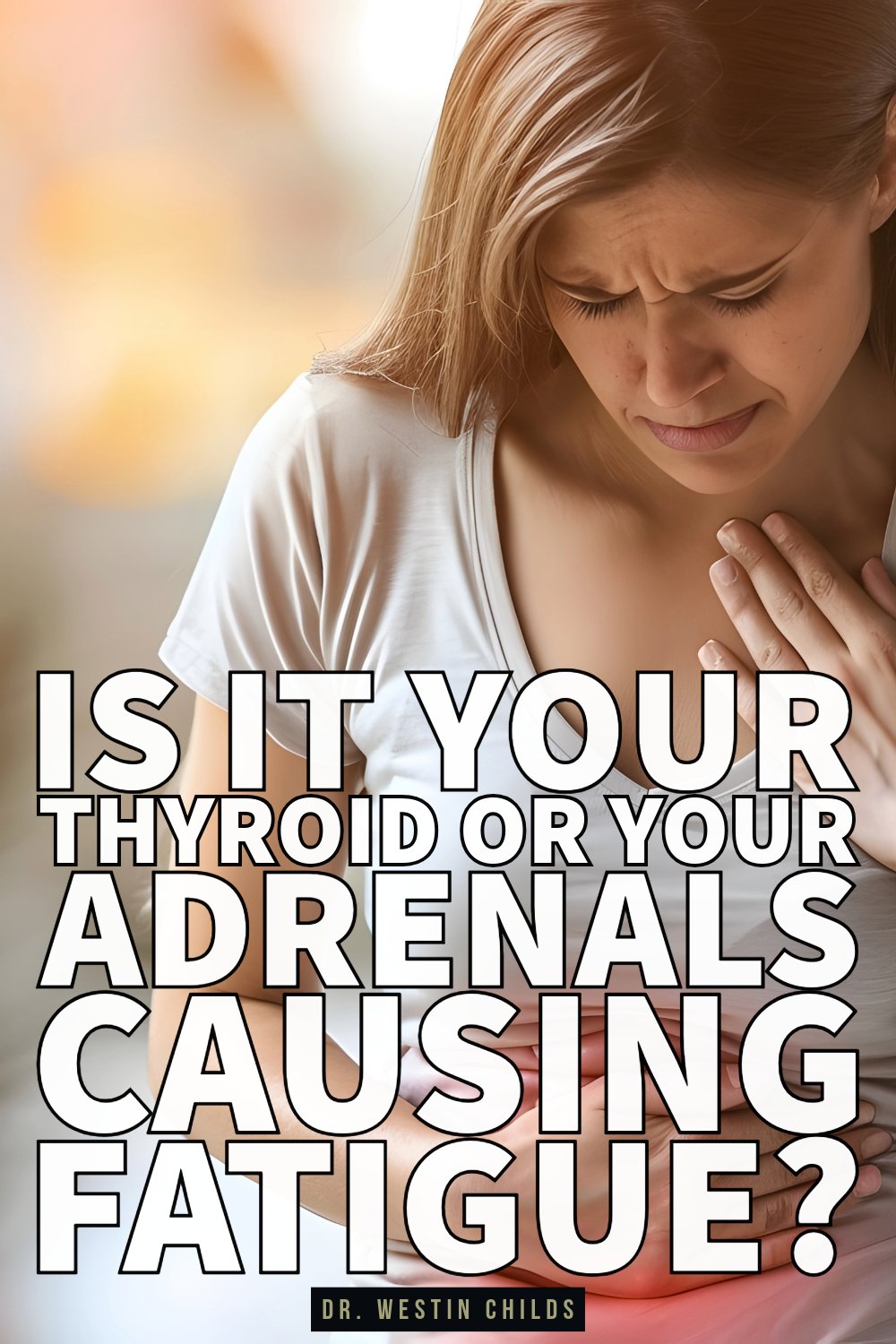
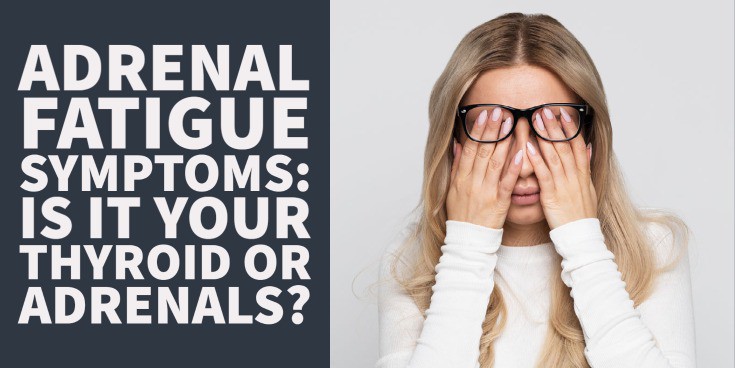
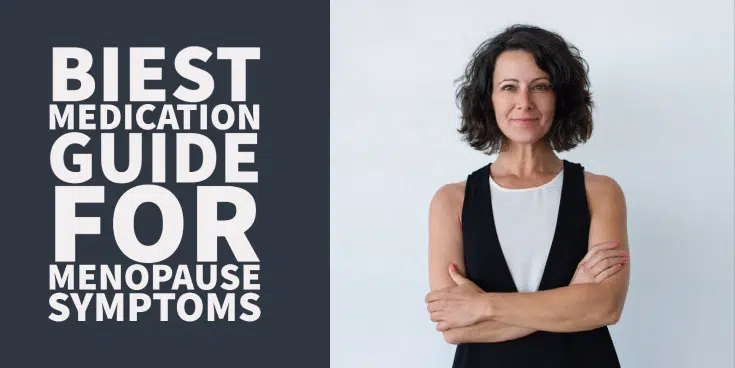
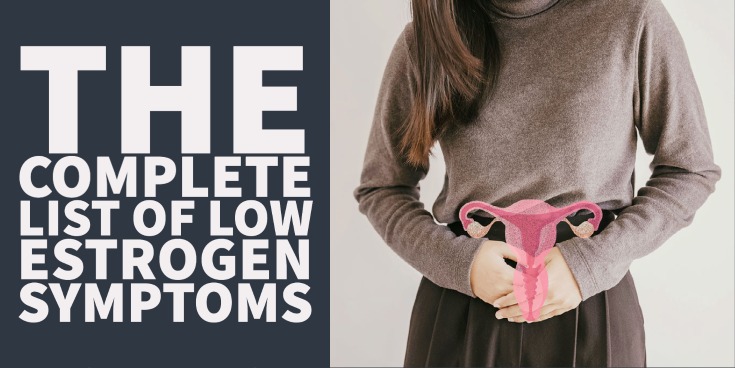
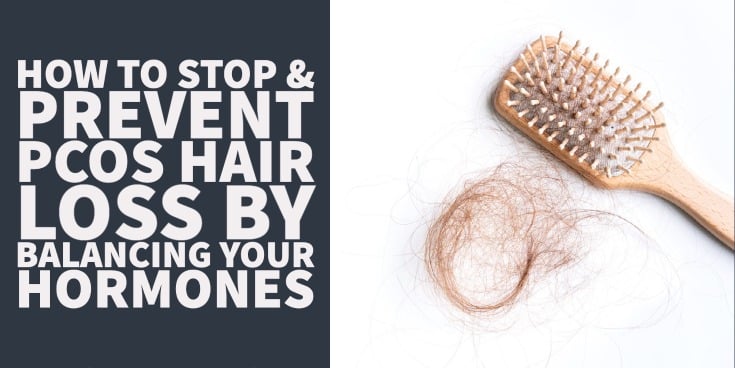
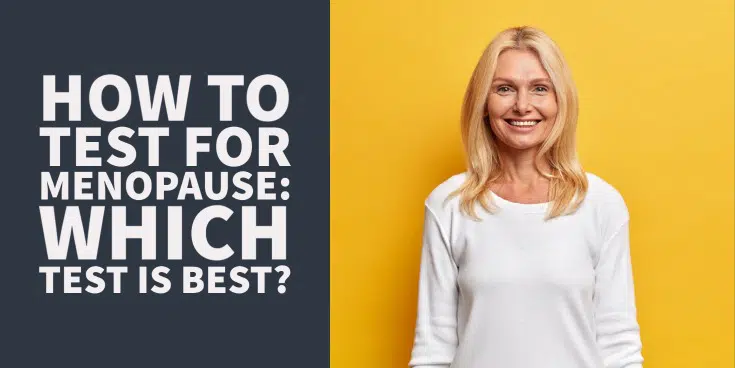

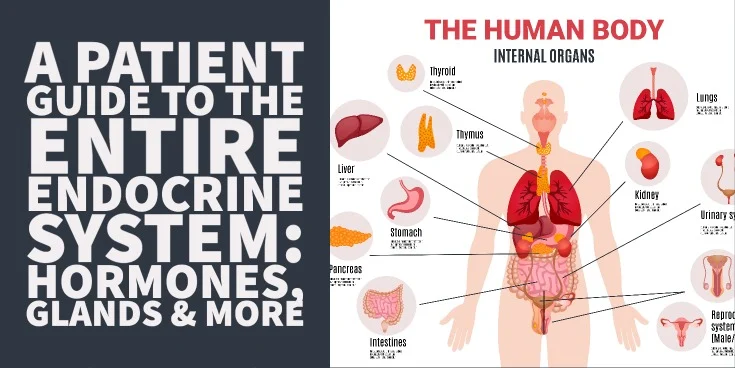

While I feel okay most of the time, I’ve noticed that I often have a fairly significant energy crash in the afternoon/evening where I need to lay down and take a nap for an hour. Around 6 pm, I feel a lot better and can go about my activities for the night. Is this more indicative of adrenal or thyroid issues? I figured thyroid fatigue would be more consistent throughout the day.
Hi Sarah,
It could be a combination of both. It’s best to get both your thyroid and cortisol/adrenals tested to figure it out.
Hi Dr. Childs,
I have been following you for a long time & I want you to know that I really appreciate your care & concern for people. I would be your patient in a heart beat if you were accepting new patients!
I had a thyroidectomy in 2007. I’ve been taking Armour 135 mg
for about 6 years. I haven’t felt well forever it seems. lots of anxiety, inflammation, fatigue recently had a saliva test for my adrenals which showed that I’m in stage 2 adrenal failure. so now im doing drops of DHEA & Pregnenalone & Licorice also treating my gut issues. I just started this treatment 2 days ago.
my question is about what do I add to this regimen for my thyroid? I’ve been looking at your bundles & trying to make a decision.
Hi Bonnie,
Good to hear from you! I would start by covering both your adrenal glands and thyroid function with these:
https://www.restartmed.com/product/t3-conversion-booster/
https://www.restartmed.com/product/thyroid-adrenal-reset-complex/
https://www.restartmed.com/product/a-r-c/
These won’t cause any issues with your existing treatment.
Hi Dr Child’s,
What’s your opinion on doing healthy keto and IF for both?
Thanks!
Hi Kathy,
In what setting? For thyroid patients or for adrenal fatigue patients or both?
Hello Dr. Childs,
I am taking your Functional Fuel Complete, Thyroid Adrenal Rest Complex, T# Conversion Booster and Iodine Ultra Complex as the bottles direct. Also taking Armour 30 at night and T3 Comp Liothyronine Sustain release in the morning 7.5 amount. Symptoms are better but still fatigued, foggy thinking some, anxiety.
Test in Dec showed – TSH 1.31, T4, Free 1.2, T3 Free 2.6 and T3 Reverse 29.
Test May 2020 after above hormones and supplements show
TSH 1.02
T4, Free 1.0
T3, Free 3.2
T3 Reverse LC/Ms/Ms 18
Tgab <1
TPOab <1
Can I increase the supplements amounts that I ordered from your company? I thought about asking my local doctor to increase the Liothyronine to 10. Your thoughts?
Thanks
Glenda
Hi Glenda,
Yes, you can double up on both T3 Conversion Booser and Thyroid Adrenal Reset Complex (up to 4 caps per day of each). Increasing your T3 is also a great idea.
Hi Dr. Westin Childs, thank you for the infos!
I have a question for you. I had thyroid cancer and removed my thyroid 3 years ago. I’m all good, i run marathons and do sports.
I have read the article you said it’s more effective to take my hormonal replacement pills in the evening, but my question is: During a high-intensity workout with weights or a long 10-hour run, should i increase the dosage of my hormones intake?
Thanks
What kind of diet are you on?
Hi Dr. Westin Childs, I was diagnosed over 10 years ago with Hashimoto’s. I was taking 100mcg of levothroxine. In general I’m tired (I could nap every day) have gained weight in my belly area and my sex drive has decreased. I also suffer from sweating and heat intolerance throughout the year. My Dr isn’t sure what is causing that particular problem so dropped me down to 88mcg. My question is if I were to take the adrenal supplement will that help with body temperature along with the other issues?
Thanks!
Kathy I am in the same boat. Did you find something to help you? Would you mind sharing to see if it will help me? Supplements? What kind? Different thyroid pills? Any advice would be nice to know.
Thanks!!
Hello Dr. Childs,
I found you on youtube and find so much of what you share very informative. I’m 57 and haven’t been well for a least 3 years now. I have seen at least 5 endocrinologists. They all say I’m fine but I’m not.
I have always had heavy periods and have had 4 pregnancies, one of which was a miscarriage and one was an ectopic pregnancy, as well as two children 10 years apart. Finally my periods were so heavy that I had a hysterectomy at age 44.
It was 3 years ago that I noticed some alarming things….fatigue out of control, course facial hair all over my face, hand fulls of hair loss and male pattern balding, painful breast boils, and 75lb weight gain.
In the past year I’ve developed severe cystic acne, and insomnia to the point that I can only get 2 hours of sleep anytime I do sleep, along with cramping as if I was ovulating, severe constipation, and one time I bled a little during the day. Also I sweat terribly without doing anything at all, and I get very dizzy at times. How can all of this be normal? How can these doctors say I’m fine?
I understand you don’t diagnose folks and can’t give any advice, but I need to find a doctor that will help me. What kind of doctor should I look for?
Thank you for any information you can help me with, I feel so alone and appreciate you more than you know.
Get your cortisol tested. Could be Cushings.
My doctor only ran a a.m. cortisol test. It was on the low end of “normal”. But of course she did flag that as a issue.
What is your opinion on iodine? I have read several different Dr’s recently and no consistent advice. One said if you have hypothyroidism get no more than 200mcg/day. ??????
My RT3 was 550 so now on T3 only (2 split during the day) I’m only on 1 x hydrocortisone, but I’m still having pulsating headaches and painful ear pressure? Any suggestions? Thanks Kay
I have hypothyroidism and used to feel the cold terribly. These days I’m the opposite – love the cooler weather but can’t tolerate heat. Is this common? For a long time I put it down to menopause but I’m well past that now. Are you sure you wouldn’t like to come practice in Australia for a while? I’d love to have a consultation with a doctor who understands me!
hi, I have some of those symptoms. My TSH is going down last labs, I have a crash often 4-6 pm Sometimes earlier and then I wake up around 5. I am finishing tyromax and now that the weather has turned, I suddenly have cold feet.
I took adrenals about 4 months ago for 2 months but my fatigue symptoms don’t seem to be relieved. VA is NOT giving me a consistent reading on T-3 and T-4 as they were 2 years ago. Not sure about cortisol.
Hi Dr Westin – After reading your article I believe I may have both adrenal fatigue as well as hypo thyroid- I have gained 80 pounds – have a stomach and have an incredibly hard time losing weight – I am taking tirosint and cytomel as I was taking nature throid but after reading your article that it was recalled and your advice I went on tirosint (100 mcg) and cytomel (15mcg) – I am also taking trulicity 75 mg once a week – please help me what else can I do to get this under co trip and lose weight and this stomach?
Thank you Dr Westin for the help you provide on the internet and your supplements. At 74 and retired for 4 yrs from a family owned medical billing and coding business, I have no diagnosed health issues except well controlled high blood pressure and excess weight.
My symptoms: wired but tired often (arms & legs often flailing at night); weight gain(when not dieting &/or taking phentermine); insomnia for over 15 yrs (can’t turn off my brain); infrequent panic attacks; stress over small things; use caffeine for energy; fatigue but not debilitating; constipation diagnosed as IBS (under control with pro/pre biotics and increased multiple forms of magnesium); muscle/joint pain; frequent brain fog.
After using Thyroid Chill, ARC II, Thyroid Reset & Iodine for 3 weeks, I get as many as 3 moderately good nights sleep occasionally waking up feeling quite well & clear headed. I follow Dr Steven Gundry’s eating program. Want to lose weight but understand Adrenal Fatigue needs to be addressed first. I have a new internist familiar with your work. I have an order for lab work as you have directed for thyroid but am unclear which tests are needed/used to help diagnose adrenal fatigue.
Have tried several times to become a consulting patient with you but it is always “sold out.” After dealing on the business side of medicine for 25 years along with personal experience with physicians, I understand they adhere to what I call obsolete training that teaches them to treat symptoms not the underlying problem. Unfortunately, medical insurance has begun to unduly influence care causing Doctors to avoid ordering tests and treatments not covered even to the detriment of their patients. Thank you for your frankness. I look forward to your response.
Charline Rambaud
Hi Dr Childs,
Thank you for all of your good work and great explanations. I had a thyroidectomy two years ago and within the last year have put on 23 pounds. I’ve had Hashimoto’s for @ 33 years and couldn’t swallow so it was a relief to have it out. I thought I’d feel better but feel worse. In 2005 I had a tumor on the right adrenal gland which was benign(). Now I had the cortisol saliva test and it came back way high, way above a normal high level, very close to going off of the chart. I asked my doctor about it but she just said that the lab probably made an error. What can I do next? I have every single symptom you’ve listed for both issues. Thank you!
Hi there,
I’ve been using your Thyroid glandular for a few days and I notice it has some adrenal in it. Appreciate the fast shipping, by the way. I have adrenal fatigue due to an under treated thyroid for several years. What time during the day would it be best to take it for adrenal fatigue, as my cortisol in the morning is low-mid? I always wake around 4am and have hypoglycemia as well as a belly even though I only weigh 100lbs and don’t eat gluten. I recently increased my Levo and added 5mcg of t3 at bed time, so it’s a start. Thanks.
Hi Janiece,
Thyroid Glandular+ should be taken as early in the morning as possible and no later than noon 🙂 The adrenal boosting components can keep some people up at night which is why I recommend using it in the morning. There are some people who can handle taking it at night, though!
Hi Dr. Child My Name Is Michelle Jackson I Am So Glad I Finally Found A Doctor Who Will Listen To Us The Patients Who Had There Thyroid Removed And Going Through All the Above Problem Above From Your Blog. I Had 8 Goiters Around my Neck March of 2017 When they Removed Them Because the Doctor Stated they was Suffocating Me Which it Grew Roots Around My Tracheal. I came home on Levothyroxine 80 mg but The Doctor Adjust to 112 mg and that’s what ive been on since 2017. But Since Covid i lost my Health Insurance so i couldn’t go to doctor to get blood drawn but i been maintaining medication through a clinic. But ive been gaining weight, Moody, Tired, Sleep off, Cold ,. I need Help to lose this weight. Im Already a heavy Women ive been on a low calorie diet but nothing happening and Also my hair has been coming out. Please help i need to know what to do. I know all this coming from inactive thyroid. My Email Address is Michellej0117@gmail
Hi Janice, has this supplement helped you with your waking at 4:00 am and hypoglycemia? I too suffer from this and would appreciate any advice.
Dr. Child’s, I believe this site is an answer to my prayers. Can you please guide me as to which products to purchase? My labs always run slightly hypo but not crazy enough for a doctor to take me seriously. Currently I’m in some kind of flare again where I’m wired but tired at night and I can’t calm my brain down/nervous system to sleep despite the many supplements I’m on. With that said I’m pretty sensitive to supps. I have dry skin, loss of libido, insomnia, anxiety, 10 lbs of weight gain recently, brain fog, cannot tolerate stress, unable to exercise much, hypoglycemia where I have to eat before going to sleep and get woken up early to eat again, cannot fast etc. Any thoughts on what I should take? I’ve only been treating my adrenals and trying to heal my gut for years now.
Dr. Child’s,
I am dealing with a odd situation. I was on Armour thyroid 1 1/2 grain for about 10 years. This February I developed Adrenal FAtigue due to overmedication. I had developed hyper symptoms and had to lower my dose. I have had to repeatedly lower my dosage due to hyper symptoms-severe insomnia, heart paps,etc. I am now on 1/2 grain and surprisingly have done ok on it for awhile. Unfortunately I now again have severe insomnia and will need to lower the dose again. That is the only way to get rid of the hyper symptoms. I just turned 60 and am wondering if I just can’t tolerate the higher dose anymore even though my test results show I am hypo. I can’t really tolerate the hyper symptoms I am getting.The test completed a month ago showed mild hypothyroid. What do you think? Are the adrenals the cause of the situation or the thyroid?
Hi Ellen,
It’s hard to say without more info but I would recommend reading this article: https://www.restartmed.com/you-cant-stay-on-the-same-thyroid-medication-dose-forever/
Dr. Childs,
I am 64 and was diagnosed with Hashimoto’s 29 years ago. I have had issues with my adrenals being above range towards the end of the day. I want to take one of your adrenal supplements just for support but not sure which one to choose. Can you suggest one please?
Hi Susan,
I would recommend this one in that situation: https://www.restartmed.com/product/a-r-c/
I am exhausted. Like never before. I am post menopausal and have all of the symptoms of adrenal and thyroid fatigue listed above (except insomnia).The exhaustion is debilitating and I find that after a good night’s sleep, I still need 1-2 three-hour naps during the day. You can imagine the havoc this plays with trying to work. I am on Armour Thyroid-liked NP much better. I live in Las Vegas, NV and don’t know how to find a doctor that will work with me. Do you have a list? I’m guessing I need more T3 but I don’t know how to get it. Can you help? Kit
Hi Kit,
I don’t have a list but I have created this resource which can help you find someone local: https://www.restartmed.com/how-to-find-a-doctor-to-treat-your-thyroid/
My family dr says I’m borderline thyroid. Dr I have now says everything is fine. But i have all theys symptoms. I’m confused.
Hi Steven,
Unfortunately, that is very standard for most conventional doctors. You need to look at your symptoms in context with your lab tests and use the optimal lab tests instead of the standard reference ranges provided by lab companies. This article explains the difference: https://www.restartmed.com/normal-thyroid-levels/
My adrenal fatigue was completely hidden from me by my coffee intake. Naturopath did a saliva cortisol test on me which was almost flat-line (stage 3). Stopped coffee and the fatigue finally appeared (severely). Later (after taking adrenal supplements a few weeks) I had a thyroid test and had a very low TSH (.130), free T3 4.4, T4 1.29, which I read as hyperthyroid. Very puzzled…I see her next week for her explanation. What do you think? I’ve always been hypothyroid, but controlled by medication before.
Hi Claire,
You would need to put your TSH in context with your symptoms. Not all cases of low or suppressed TSH levels automatically mean you are hyperthyroid which is why symptom assessment is also important. You can learn more about the difference between a low TSH and a suppressed TSH and the potential consequences of both here: https://www.restartmed.com/low-tsh-vs-suppressed-tsh-on-thyroid-medication/
Hi Dr. Child’s,
I love your articles – they’ve really helped me become more knowledgeable on thyroid conditions and advocate for myself and my treatments.
I have not been tested, but strongly feel adrenal fatigue is in play for me. Im going to try the reset protocol. After completing the reset, do you recommend continuing these supplements indefinitely?
Thank you!
Hi Jenna,
I’m not quite sure what you mean by the reset protocol, can you clarify? In general, though, most adrenal supplements can be used indefinitely.
I’m a 46 year old woman being treated for hypothyroidism which has developed in the last couple of years. My TSH and T4 numbers have normalized but my T3 and sypmptoms (fatigue especially) have continued to worsen. I am physically active and at a health weight. I’ve been getting cortisone injections every 6 months to treat back pain for several years and am beginning to suspect it has created some adrenal insufficiency that is the root cause of my thyroid issues. I just had RT3 and thyroid antibodies tested (waiting on results). I’ve been referred to endocrinologist. Other than serum cortisol what else should I check and what questions should I be addressing with my new doc?
Hi Cheri,
Unfortunately, endocrinologists don’t really consider adrenal fatigue a real disease so they will most likely blow you off if you bring it up. They also are not really open to the idea of testing beyond the TSH and maybe free T4. for these reasons, it’s often best to go to different doctors: https://www.restartmed.com/how-to-find-a-doctor-to-treat-your-thyroid/
So I have ALL the listed symptoms of Adrenal Fatigue and my TSH is 0.58 and my T3 and T4 are within normal range and I have more symptoms of hypo than hyperthyroidism but my adrenals are the clear issue. Compounded my the fact I had/have long haul Covid. Are my adrenals affecting my TSH? Was it Covid? What do I do now?
Hi Kelly,
It’s certainly possible that all of the things mentioned and more may be contributing. You’ll need a good doctor to help you figure it out. You can find more information on how to find one here: https://www.restartmed.com/how-to-find-a-doctor-to-treat-your-thyroid/
Hi Dr. Childs,
For high cortisol is PS100 best taken in multiple doses throughout the day, or one dose only at night ?
Thanks so much
Do you have info on adrenal insufficiency and Addison’s after being treated with Synthroid for decades?
I understand that the Synthroid PI has added that adrenals should always be tested before starting T4 treatment and that it is Contraiindicated with untreated adrenal insufficiency or Addison’s.
I’ve been to allopathic endocrinologists as well as FMPs who all disagree about my cortisol levels.
I’m bedridden.
Hi Barbara,
I do not, but I’ll add that to the list of future topics to discuss. I do have a lot of information on how to treat your adrenals, though, and you can find that here:
https://www.restartmed.com/adrenal-fatigue-supplements/